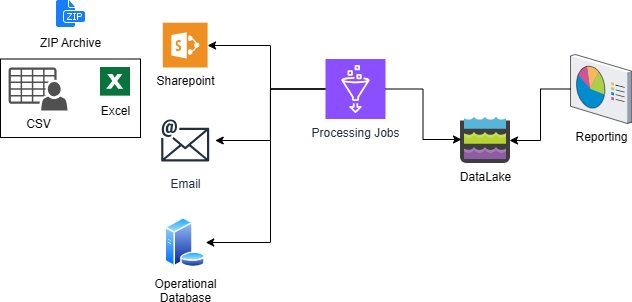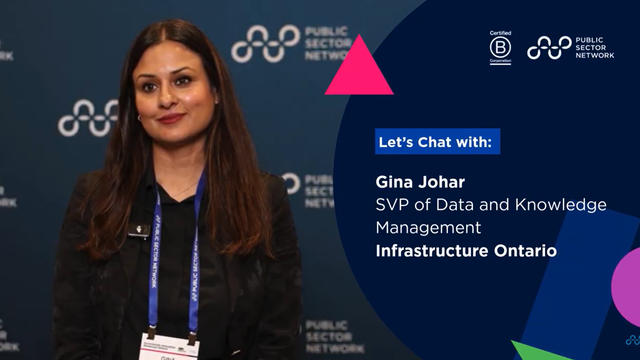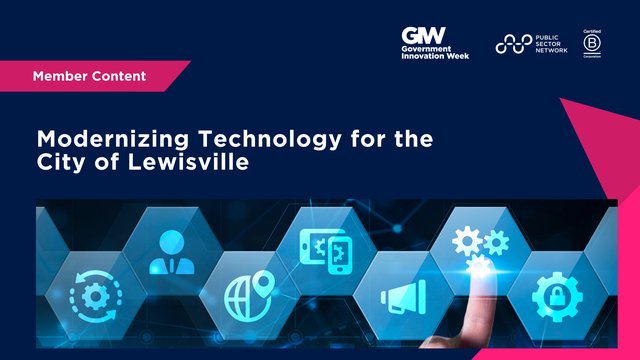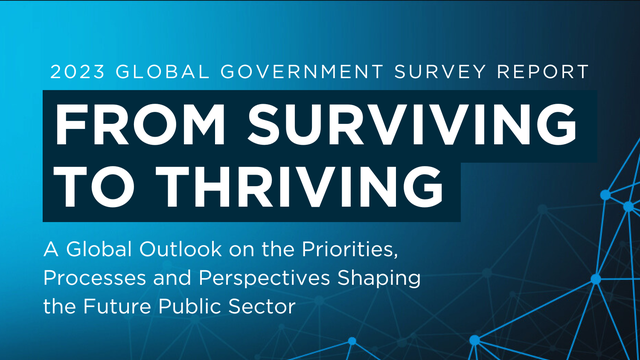
As governments worldwide push forward with digitalization initiatives, one critical component consistently stands out: interoperability. This concept goes beyond simple technology adoption; it is about enabling seamless data exchange across repositories and registries, between governmental organizations, and across jurisdictional boundaries. When implemented effectively, interoperability enhances governance, elevates client services, and allows governments to operate more efficiently and in a more cost-effective manner.
Why Interoperability Matters
The pandemic underscored the urgent need for better digital services, thus the need for data sharing and interoperability across government systems and data sharing became more apparent. Today, governments are making investments to break down silos in data repositories and to modernize technology.
Interoperability and efficient exchange of data are essential to a well-functioning and connected digital government. At its core, technical interoperability enables two systems—such as statutory registries—to exchange, comprehend, and effectively use data. However, interoperability extends beyond the technical layer, encompassing critical organizational, legal, and political dimensions. By prioritizing technical interoperability at the base registry level, governments can establish a robust foundation to support sustainable and transformative digital initiatives.
Barriers to Interoperability and Seamless Data Exchange
Achieving true interoperability is far from straightforward. It requires coordinated efforts from policymakers, regulatory bodies, and private sector actors. Despite ongoing progress, numerous issues continue to hamper governments around the globe. In the early 2000s, the Organization for Economic Co-operation and Development (OECD) highlighted several barriers to interoperability, such as:
Integration issues with legacy systems
A lack of shared standards and infrastructure
Slow adoption of technological improvements
A major obstacle to interoperability lies in legacy systems—outdated, siloed technologies developed to solve domain-specific problems without consideration for broader integration. These fragmented systems create technical barriers that impede data sharing across platforms and administrative boundaries.
Ongoing Initiatives
There are some key developments underway in the EU and Canada as it relates to digital government and architecting frameworks to support data interoperability.:
- European Commission – The New Interoperability Framework for EU Public Services: The EU has made significant advances and investments into the design and implementation of its interoperability framework for all Member States, setting a benchmark for connected government systems.
- Canadian Federal Government: Progress towards a conceptual digital exchange platform is underway, offering valuable insights into achieving interoperability at scale. Yet, Canada faces unique challenges as a geographically large and diverse country with multiple levels of government to navigate.
These examples are explored in Enabling Digital Government: Interoperability and Data Exchange Across Registries, highlighting some of the design and operational considerations for interoperability frameworks.
Building Blocks for Successful Interoperability
To create a truly interoperable digital government, governments must focus on:
- Standardized Data Models: Ensuring consistent data formats across systems.
- Modernizing Legacy Systems: Gradual upgrades and integration to reduce fragmentation.
- Policy and Legal Support: Clear regulations that facilitate data sharing while respecting privacy and security.
- Stakeholder Collaboration: Engaging public and private sector partners to drive adoption.
Towards Register Interoperability
Interoperability is not just a technical challenge—it’s a transformative force for digital government. By focusing on the foundational elements of interoperability, governments can build a sustainable framework for innovation, efficiency, and better citizen services. Enabling Digital Government: Interoperability and Data Exchange Across Registries explores complex issues spanning technical, organizational, legal, and political dimensions, focusing on technical interoperability at the base registry level as a solid foundation for broader digital transformation and better citizen services.
Published by
About our partner

Teranet Inc.
Teranet is Canada’s leader in delivering and transforming statutory registry services, with extensive expertise in land and commercial registries. Our unmatched registry expertise makes us the most authoritative source of data and market insight for the financial services, real estate, and government and utility sectors.As a global leader in designing and modernizing land and business registry solutions, Teranet provides significant funding and efficiencies for governments. Our solutions operate under a proven, comprehensive governance framework to facilitate electronic property searches and registrations, business registrations, writ searches, personal property, and other regulated services.A Trusted Provider in Digital Registry Solutions: By utilizing Teranet’s business and operating model, government leaders can create stable revenue streams while effectively revolutionizing and maintaining their search and registry systems across multiple sectors and categories.Flexible Delivery: A suite of customizable delivery models and registry solutions that support consumer-facing activities and efficient back-office operations.Improved Access:Our easy-to-use online solutions provide consumers with quick, direct access to government records and registry services.Advanced Security:Our Electronic Land Registration System is recognized as one of the most sophisticated, secure, and reliable in the world.Delivering Value:We collaborate with governments to optimize value for money, reduce operational costs, and generate new sources of revenue.Teranet is an internationally recognized leader and pioneer in modernizing registry solutions. Our capabilities help governments and businesses optimize customer experience and deliver access to key public data to help customers make quicker, faster, and more informed decisions. Contact us to learn how our proven innovations and collaborative models can deliver similar benefits to you.
Learn more
































